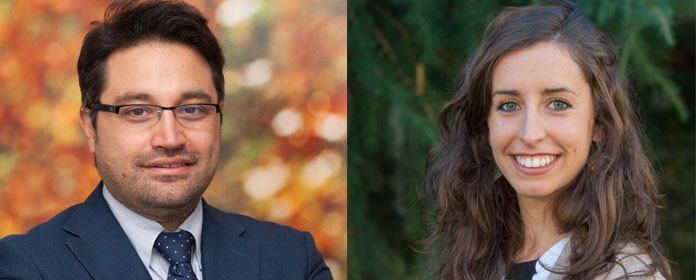Self-care generates self-control and psychological well-being during confinement
A research of the University of Navarra, in partnership with experts from other centers in Spain, Chile and Colombia, is looking for volunteers to test these effects.

A project of research of the University of Navarra will analyze the role of self-care in the status confinement caused by the coronavirus, and the possible effects on the psychological well-being of individuals.
This research will be developed in five universities in Latin American countries: the University of Navarra, the University of the Basque Country, the University of development (Chile) and the University of San Buenaventura (Colombia). For this purpose, we are looking for volunteers, of legal age, who wish to participate in the study, and request that they complete this brief form.
"The goal is, on the one hand, to analyze how those people who put in internship self-care behaviors experience a greater sense of control over the status. On the other, to establish how these behaviors influence the psychological well-being of the population," explain Elkin Luis and Elena Bermejo, principal investigators of project.
According to these researchers, self-care is a set of coping strategies status that can be implemented to prevent deficits or strengthen people's well-being on a physical, psychological, emotional or spiritual level. "For example, self-care can be an increase in the individual's hygiene (washing hands more frequently) or performing meditation exercises," they explain.
The research arises from the possible influence of how the measures implemented by governments to prevent contagion and the collapse of health institutions have had an impact on incorporating and modifying the health habits of the population; and may be influencing, in turn, different dimensions of their own well-being.
Influence between countries and of overinformationIn addition, the experts seek to determine how committed people are to self-care, according to the containment measures that each country in the study has implemented, and according to the over-information to which these people have been exposed about the issue of infections and deaths caused by the virus".
The researchers participating in the project are: Elkin Luis, Luis Eudave and Marín Martínez, professors from the School from Education and Psychologyand Elena Bermejo Martins, professor at the University of Navarra. School Nursing Psychology of the University of Navarra. In addition, Ainize Sarrionandia, from the University of the Basque Country, Pablo Fernández Berrocal from the University of Málaga; Edwin Oliveros from the University of San Buenaventura, Francisco Ceric and Cristian Cortes from the University of development. It also has the partnership of the high school Colombian Psychologists.
Information for Colombia and ChileIn addition to the form specified in this news item, there is a specific form for those volunteers residing in Chile and Colombia.
